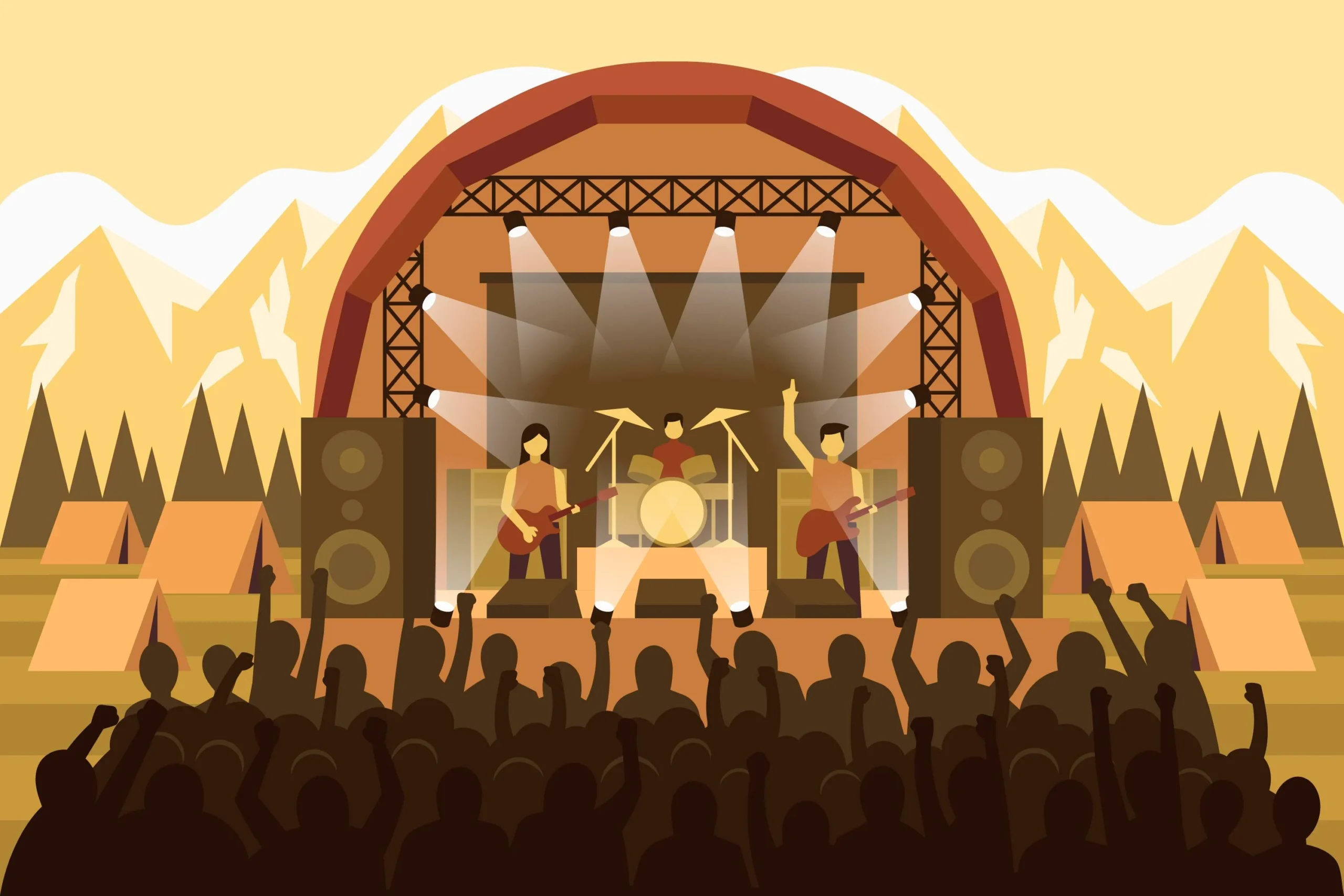Music festivals have become a cornerstone of contemporary culture, celebrated for their vibrant performances and diverse lineups. These events, ranging from intimate local gatherings to massive global extravaganzas, have a profound impact on both the local and global music scenes. This article explores the multifaceted effects of music festivals, examining their influence on local communities, emerging artists, and the broader global music landscape.
The Local Impact of Music Festivals
Economic Benefits for Host Cities
Music festivals contribute significantly to the local economy of host cities and towns. The influx of festival-goers stimulates various sectors, including:
- Tourism: Festivals attract visitors from near and far, boosting local tourism and generating revenue for hotels, restaurants, and other businesses.
- Employment: The organization of a music festival creates temporary job opportunities in areas such as event planning, security, catering, and transportation.
- Local Vendors: Festivals often feature local artisans, food vendors, and craft makers, providing them with a platform to reach a larger audience and increase sales.
Cultural Enrichment and Community Engagement
Music festivals play a crucial role in enriching local culture and fostering community engagement:
- Showcasing Local Talent: Many festivals feature local musicians and artists, offering them a stage to gain recognition and connect with a broader audience.
- Cultural Exchange: Festivals often celebrate diverse musical genres and cultural traditions, promoting cultural exchange and understanding within the community.
- Community Spirit: The communal experience of attending a festival can strengthen local bonds and foster a sense of pride and identity among residents.
Infrastructure and Urban Development
Hosting a music festival can lead to improvements in local infrastructure and urban development:
- Venue Upgrades: Festivals often necessitate upgrades to local venues and public spaces, benefiting the community long after the event.
- Transportation Improvements: The need for efficient transportation during festivals can lead to enhancements in public transit and road systems.
The Global Impact of Music Festivals
Amplifying Emerging Artists and Genres
Music festivals play a significant role in promoting emerging artists and new genres on a global scale:
- Exposure for New Talent: Festivals provide a platform for up-and-coming artists to perform in front of large audiences and industry professionals, often leading to increased recognition and opportunities.
- Genre Cross-Pollination: Festivals showcase a wide range of musical styles and genres, facilitating the blending of different musical traditions and the emergence of new, hybrid genres.
Influencing Music Trends and Industry Dynamics
The global reach of major music festivals influences music trends and industry dynamics:
- Setting Trends: Major festivals often highlight emerging trends in music and fashion, influencing broader cultural movements and industry practices.
- Global Music Industry: Festivals contribute to the globalization of the music industry by connecting artists and audiences from different regions, leading to the exchange of ideas and the expansion of musical markets.
Strengthening International Collaboration
Music festivals foster international collaboration and cultural diplomacy:
- Collaborative Projects: Festivals often feature collaborations between artists from different countries, leading to the creation of innovative and diverse musical projects.
- Cultural Diplomacy: By bringing together performers and audiences from around the world, festivals promote cultural diplomacy and enhance mutual understanding between nations.
The Environmental and Social Impacts of Music Festivals
Environmental Considerations
Music festivals can have significant environmental impacts, including:
- Waste Management: Large-scale festivals generate substantial amounts of waste, necessitating effective waste management practices to minimize environmental damage.
- Energy Consumption: The energy required for lighting, sound, and other festival infrastructure can contribute to carbon emissions, highlighting the need for sustainable practices.
Social Impacts
The social impacts of music festivals extend beyond the immediate festival experience:
- Inclusivity and Accessibility: Festivals have the potential to promote inclusivity by featuring diverse artists and ensuring accessibility for all attendees.
- Community Issues: While festivals can strengthen community bonds, they can also pose challenges such as noise complaints, traffic congestion, and disruptions to local services.
Conclusion
Music festivals have a profound impact on both the local and global music scenes, shaping economic, cultural, and social dynamics. Locally, they drive economic growth, enrich cultural life, and enhance community engagement, while globally, they amplify emerging artists, influence music trends, and foster international collaboration. However, the environmental and social challenges associated with large-scale events highlight the need for sustainable practices and thoughtful planning. As music festivals continue to evolve, their role in shaping the music landscape and contributing to cultural exchange remains a significant aspect of their legacy.



